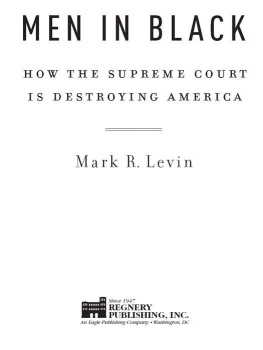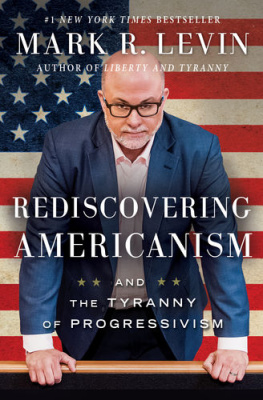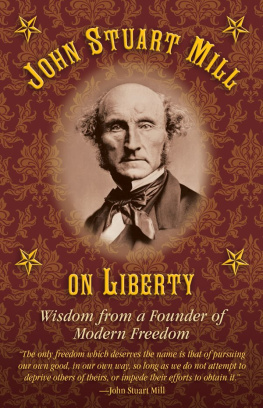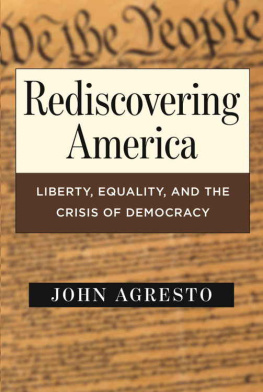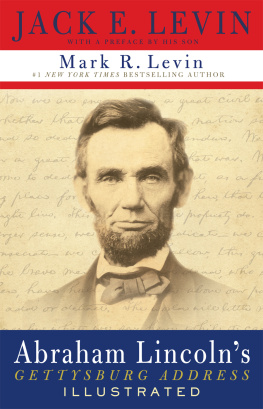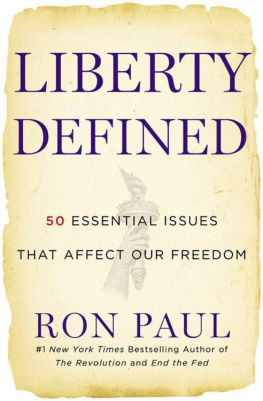Levin - Rediscovering Americanism: and the tyranny of progressivism
Here you can read online Levin - Rediscovering Americanism: and the tyranny of progressivism full text of the book (entire story) in english for free. Download pdf and epub, get meaning, cover and reviews about this ebook. City: United States, year: 2018, publisher: Threshold Editions, genre: Politics. Description of the work, (preface) as well as reviews are available. Best literature library LitArk.com created for fans of good reading and offers a wide selection of genres:
Romance novel
Science fiction
Adventure
Detective
Science
History
Home and family
Prose
Art
Politics
Computer
Non-fiction
Religion
Business
Children
Humor
Choose a favorite category and find really read worthwhile books. Enjoy immersion in the world of imagination, feel the emotions of the characters or learn something new for yourself, make an fascinating discovery.

Rediscovering Americanism: and the tyranny of progressivism: summary, description and annotation
We offer to read an annotation, description, summary or preface (depends on what the author of the book "Rediscovering Americanism: and the tyranny of progressivism" wrote himself). If you haven't found the necessary information about the book — write in the comments, we will try to find it.
Rediscovering Americanism: and the tyranny of progressivism — read online for free the complete book (whole text) full work
Below is the text of the book, divided by pages. System saving the place of the last page read, allows you to conveniently read the book "Rediscovering Americanism: and the tyranny of progressivism" online for free, without having to search again every time where you left off. Put a bookmark, and you can go to the page where you finished reading at any time.
Font size:
Interval:
Bookmark:
We hope you enjoyed reading this Simon & Schuster ebook.
Get a FREE ebook when you join our mailing list. Plus, get updates on new releases, deals, recommended reads, and more from Simon & Schuster. Click below to sign up and see terms and conditions.
CLICK HERE TO SIGN UP
Already a subscriber? Provide your email again so we can register this ebook and send you more of what you like to read. You will continue to receive exclusive offers in your inbox.
Thank you for downloading this Simon & Schuster ebook.
Get a FREE ebook when you join our mailing list. Plus, get updates on new releases, deals, recommended reads, and more from Simon & Schuster. Click below to sign up and see terms and conditions.
CLICK HERE TO SIGN UP
Already a subscriber? Provide your email again so we can register this ebook and send you more of what you like to read. You will continue to receive exclusive offers in your inbox.
ALSO BY MARK R. LEVIN
Plunder and Deceit
The Liberty Amendments
Ameritopia
Liberty and Tyranny
Rescuing Sprite
Men in Black


Threshold Editions
An Imprint of Simon & Schuster, Inc.
1230 Avenue of the Americas
New York, NY 10020
www.SimonandSchuster.com
Copyright 2017 by Mark R. Levin
All rights reserved, including the right to reproduce this book or portions thereof in any form whatsoever. For information, address Threshold Editions Subsidiary Rights Department, 1230 Avenue of the Americas, New York, NY 10020.
First Threshold Editions hardcover edition July 2017
THRESHOLD EDITIONS and colophon are trademarks of Simon & Schuster, Inc.
For information about special discounts for bulk purchases, please contact Simon & Schuster Special Sales at 1-866-506-1949 or .
The Simon & Schuster Speakers Bureau can bring authors to your live event. For more information, or to book an event, contact the Simon & Schuster Speakers Bureau at 1-866-248-3049 or visit our website at www.simonspeakers.com.
Interior design by Davina Mock
Jacket design by Ariana Grabec Dingman
Jacket photography Mark Gorman; LiliGraphie/Depositphotos (flag)
Author photograph by ABC Radio Network
Library of Congress Cataloging-in-Publication Data is available.
ISBN 978-1-4767-7308-7
ISBN 978-1-4767-7347-6 (ebook)
To my wonderful parents, Jack and Norma
I OFTEN WONDER WHAT Thomas Jefferson, George Washington, James Madison, John Adams, George Mason, Benjamin Franklin, and the other Founders would think about todays America. What about the earliest Boston revolutionaries, men like Samuel Adams, Joseph Warren, John Hancock, and Paul Revere? Of course, they would be mesmerized by all the modern inventions and conveniences of everyday life, but what of the ubiquitous nature of the federal government? Surely they would object.
In Liberty and Tyranny I wrote: So distant is America today from its founding principles that it is difficult to precisely describe the nature of American government. It is not strictly a constitutional republic, because the Constitution has
Moreover, do most Americans appreciate liberty, the civil society, republicanism, and economic prosperity or fear their loss? Of course, if you ask someone the question about himself, he is likely to answer yes, although he might wonder about his fellow citizens grasp and gratitude. But the issue is more perplexing and vital to the future of the American republic than one might initially imagine. An incalculable number of philosophers and scholars, ancient to modern, have written extensively about these topics. It is beyond my mortal competence or the physical limitations of this book to catalog or probe them all here. Although five of my six earlier books have addressed these subjects in various ways, there is great value if not urgency in exploring them further from an additional or a more thorough perspective, given what I believe to be their precariousness in modern America. Thus we must tackle the matter of first principles. After all, this is our heritage. This is not a mere academic or theoretical exercise among elitists, of interest only to professors and navel-gazers. It sits at the core of human existence and American society and, therefore, is relevant to us all. These principles, and understanding them, serve as the antidote to tyrannical regimes and governments.
I am well aware that this book will not change the course of history. But if it can open a few eyes it will have served its purpose. I shall do my best to make my writing accessible and interesting to the broadest audience without compromising content. In this book, I quote substantially and directly from various philosophers and thinkers to provide the reader with a real understanding and feel for what is being argued and proposed. In addition to extensive endnotes, I also provide book and essay titles and sources throughout the body of this book, thereby making it easier for the reader to go to those sources on their own should they want to further explore them. Nonetheless, this book will require the readers focus and engagement as it covers much material in relatively short order.
It is fitting to begin our journey with the final letter written by one of Americas greatest Founders, Thomas Jefferson. On June 24, 1826, Jefferson, who was quite ill, wrote to Roger Weightman from Monticello, declining his invitation to participate in the fiftieth-anniversary celebration of the Declaration of Independence. Jefferson would become bedridden two days later and die on July 4, the same day his good friend in later years, John Adams, passed away.
In great pain from numerous ailments, and now writing with his left hand since he had earlier broken his right hand, which never healed properly, Jefferson wrote:
Monticello
June 24. 1826
Respected Sir
The kind invitation I receive from you on the part of the citizens of the city of Washington, to be present with them at their celebration of the 50th. anniversary of American independence; as one of the surviving signers of an instrument pregnant with our own, and the fate of the world, is most flattering to myself, and heightened by the honorable accompaniment proposed for the comfort of such a journey. [I]t adds sensibly to the sufferings of sickness, to be deprived by it of a personal participation in the rejoicings of that day. [B]ut acquiescence is a duty, under circumstances not placed among those we are permitted to control. I should, indeed, with peculiar delight, have met and exchanged there congratulations personally with the small band, the remnant of that host of worthies, who joined with us on that day, in the bold and doubtful election we were to make for our country, between submission or the sword; and to have enjoyed with them the consolatory fact, that our fellow citizens, after half a century of experience and prosperity, continue to approve the choice we made. [ M ] ay it be to the world, what I believe it will be, (to some parts sooner, to others later, but finally to all,) the Signal of arousing men to burst the chains, under which monkish ignorance and superstition had persuaded them to bind themselves, and to assume the blessings & security of self-government. [ T ] hat form which we have substituted, restores the free right to the unbounded exercise of reason and freedom of opinion. [ A ] ll eyes are opened, or opening, to the rights of man. [ T ] he general spread of the light of science has already laid open to every view. [ T ] he palpable truth, that the mass of mankind has not been born with saddles on their backs, nor a favored few booted and spurred, ready to ride them legitimately, by the grace of God. [ T ] hese are grounds of hope for others. [F]or ourselves, let the annual return of this day forever refresh our recollections of these rights, and an undiminished devotion to them. (Italics added)
Next pageFont size:
Interval:
Bookmark:
Similar books «Rediscovering Americanism: and the tyranny of progressivism»
Look at similar books to Rediscovering Americanism: and the tyranny of progressivism. We have selected literature similar in name and meaning in the hope of providing readers with more options to find new, interesting, not yet read works.
Discussion, reviews of the book Rediscovering Americanism: and the tyranny of progressivism and just readers' own opinions. Leave your comments, write what you think about the work, its meaning or the main characters. Specify what exactly you liked and what you didn't like, and why you think so.


